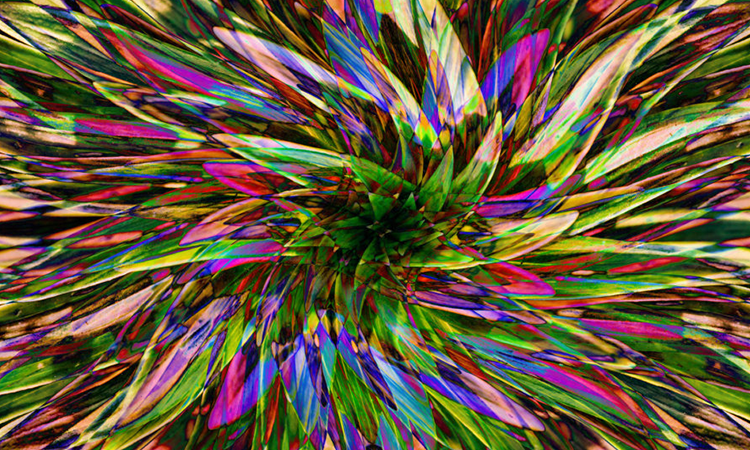
LSD (lysergic acid diethylamide, also referred to as acid) is a popular hallucinogenic drug used for its mind-altering, psychedelic properties. It’s most popular among teens and young adults, but can be used by anyone of any age. Currently, more than 3.1 million Americans report experimenting with LSD at least once, and many use it on a regular basis.
LSD is a synthetic (human-made) drug derived from the fungus ergot. LSD interacts with the body by attaching to serotonin receptors, causing a cross-activation between receptors with no additional serotonin production.
Effects include heightened sensations, hallucinations and delusions, and alertness. The average “trip” can last anywhere from 4-14 hours. Other effects may include the following:
- Visual distortions
- Altered sensory experience, such as enhanced colors
- Synesthesia (e.g., “seeing” sounds)
- Euphoria
- The sensation of slowed time
- Visualization of geometric or colored patterns
Although from a physiological perspective, LSD is considered one of the least dangerous drugs, it’s also a substance that can cause long-term mental and emotional side effects.
Short-Term Effects of LSD
The precise effects of LSD can vary widely between users, partly because the scope of effects is based on how well LSD is able to attach to serotonin receptors, and also because the substance itself varies considerably in terms of quality, strength, and dosage due to unregulated production and distribution. Moreover, some users may experience euphoria and enjoyable hallucinations while others might have a terrifying experience or a “bad trip.”
LSD use can result in a number of short-term symptoms, most often euphoria and visual and auditory hallucinations. Most users will also experience:
- Increased blood pressure
- Heart palpitations or increased heart rate
- Dry mouth
- Tremors and shaking
- Insomnia
- Fever and sweating
- Dehydration
- Paranoia
- Anxiety
- Loss of touch with reality
Many users experience marked differences between one trip and another. One dose of LSD can cause a person to be very elated, and another dose on another day can result in frightening hallucinations. Over the short-term, LSD is not considered toxic, although users are mentally impaired while using it and may be more open to suggestion.
Long-Term Effects of LSD
While LSD is considered to be chemically addictive and it poses a lower risk of abuse and dependence than many other illicit drugs, regular use can result in tolerance. Tolerance, in rare instances, can provoke addiction-like behavior and sensory blunting. Sensory blunting occurs when the user becomes more accustomed to how they feel on the substance than they do when clean, and thus the sensory and emotional input experienced while the user is sober feels blunted or dull in comparison to experiencing a high.
Long-term effects of LSD may include:
- Emotional blunting (chronically dissatisfied, feeling bored)
- Lack of motivation or enjoyment
- High tolerance
- Depression
- Extreme anxiety
- Paranoia
- Flashbacks
- Panic attacks
- Irrationality
Unfortunately, users with co-occurring mental disorders such as schizophrenia, anxiety, PTSD, and bipolar disorder are much more likely to experience mental side effects such as depression and anxiety from using LSD.
The risks that result from long-term LSD use are primarily psychological, and users may experience worsening anxiety, panic attacks, paranoia, and moodiness in the weeks and months following excessive LSD usage. Fortunately, however, getting clean usually results in the abatement of most symptoms.
A Word on Flashbacks and Overdose
Hallucinogen Persisting Perception Disorder (HPPD) also commonly referred to as flashbacks, is a condition in which the user re-experiences a trip weeks or months after it occurs. This can be disturbing, but HPPD is not linked to any physical changes or neurological damage and is relatively rare.
In the very rare event of an overdose, users of LSD take very large amounts of the drug to the point of being life-threatening and require hospitalization. Individuals experiencing an LSD overdose can have an elevated heart rate and blood pressure and develop hyperthermia, otherwise known as overheating.
LSD Abuse and Treatment
Like other drugs, LSD can be hazardous – however, due to minimal side effects and the lack of habit-forming tendencies, many users who take LSD assume it’s completely safe. Rather, they may experience emotional blunting, be more apt to put themselves in dangerous situations when tripping and lose interest in real life events.
Moreover, people who use drugs such as LSD excessively often alter focus, and switch their interest to the drug and away from attention to personal responsibilities. They also may be more apt to experiment with other, more dangerous drugs such as opioids or alcohol.
If you or someone you are close to is using LSD, treatment is available. LSD is not chemically addictive, but it can still contribute to behaviors and issues that require medical assistance and therapy geared toward sobriety. This is especially critical for families where excessive LSD use can alter and damage relationships, and family counseling is needed to repair relationships so the family can regain their health and happiness.
Our center offers comprehensive, evidence-based treatments facilitated by professional medical and mental health staff who specialize in addiction and can provide patients with the tools they need to recover and regain the life and wellness that they deserve.